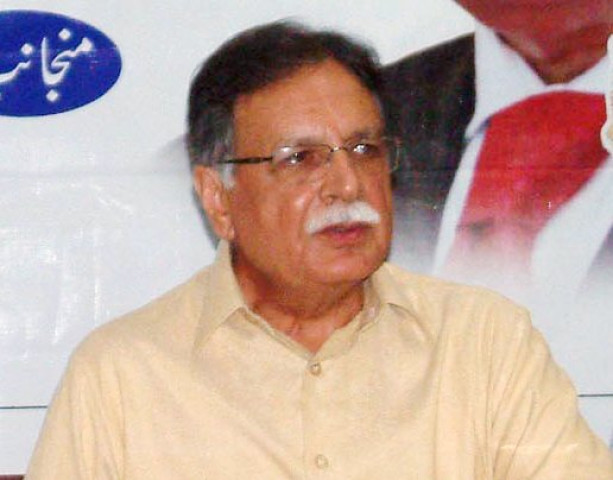Keamari deaths: Soybean dust theory a ‘cover-up’
Senator Pervaiz Rasheed says apparently attempt under way to protect actual culprits

Senator Pervaiz Rasheed says apparently attempt under way to protect actual culprits. PHOTO: INP/FILE
“Pakistan has been importing soybean for four decades and is also supplied to several other countries but something like this has never happened before,” Senator Pervaiz Rasheed of the PML-N noted during a meeting of the Senate Standing Committee on Climate Change.
Fourteen people – mostly belonging to Keamari– have died and around 450 others have been hospitalised since Sunday due to what was earlier described as a poisonous gas.
A research institution had claimed that the people were affected by “overexposure to soybean dust”.
However, some top government doctors have ruled out that theory, claiming that a fumigant containing methyl bromide might be the actual culprit.
Military’s chemical, nuclear specialists called in as Karachi toxic gas toll hits 14
During the committee meeting chaired by Senator Sitara Ayaz, Rasheed regretted that even though lives were still at risk, the government had neither been unable to determine the cause of the deaths, nor registered a case.
The senator also pointed out that no minister had visited the affected families yet.
Minister of State for Climate Change Minister Zartaj Gul replied that it was the Sindh government’s responsibility to take action as environment protect fell under the provinces’ domain after the 18th Constitutional Amendment.
“It is the Sindh government’s job to present a report on the mater. If there’s an environmental hazard, then the ministry of climate change will respond to the issue and share the scientific report of the incident,” she added.
The state minister said the Sindh Environmental Protection Agency (Sepa), the Maritime Security Agency and the Pakistan Space and Upper Atmosphere Research Commission (Suparco) were conducting an inquiry into the matter that would ascertain the facts.
"We are in contact with Sepa on this issue and waiting for the report to find out what caused the deaths.”
Based on a report issued by the University of Karachi’s International Center for Chemical and Biological Sciences (ICCBS), officials have asked the provincial government to dock away soybean containers from the city’s jurisdiction to avoid further damage.



















COMMENTS
Comments are moderated and generally will be posted if they are on-topic and not abusive.
For more information, please see our Comments FAQ